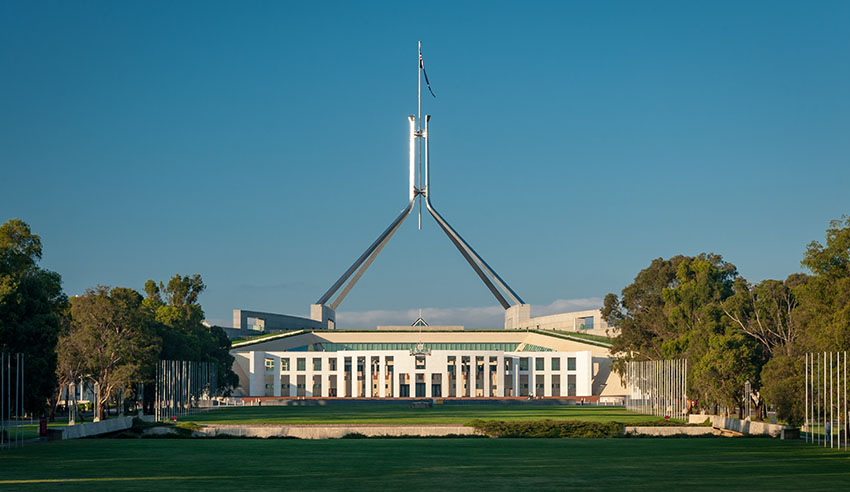‘We’re sending the wrong message’: Legal academic protests inquiry into sexual harassment within federal government
Another report investigating the extent of sexual harassment and bullying within a workplace – even if that workplace is the Federal Parliament – is not needed because the solutions are already obvious, an academic with UNSW Law has argued.

Responding to reports that have come out of the federal government over the last fortnight, UNSW Law Scientia Professor Louise Chappell said there is already a dearth of reports and guidelines on sexual discrimination and harassment in the workplace, so calls for an inquiry within Parliament would be a “serious deflection”.
To continue reading the rest of this article, please log in.
Create free account to get unlimited news articles and more!
“What it demonstrates to us is that there’s no clear pathway because if there was, we would only need one inquiry or we wouldn’t need an inquiry at all because it would have been handled correctly in the first place and sent to the Australian Federal Police,” Professor Chappell said in response to the idea of four inquiries.
A fortnight ago, former political adviser Brittany Higgins told media that she had been raped by a male colleague in a governmental minister’s office in 2019. It prompted a number of other women to come forward with their own stories, including that of a 1989 rape allegation against an unidentified cabinet minister and an opposition MP.
Professor Chappell called into question the government’s lack of acknowledgement on other, respected reports and inquiries. For one, Sex Discrimination Commissioner Kate Jenkins handed down the Respect@Work report 12 months ago with “very clear, sensible guidelines that should apply everywhere”.
“So far, the Minister for Women [the Honourable Marise Payne] has done nothing to implement those recommendations, adding more questions about the value of these additional inquiries,” Professor Chappell said. “We don’t need more royal commissions, inquiries and reviews. What we need is a code of conduct with strong sanctions that covers sexual harassment, gender disparities and structural change.”
A code of conduct has already been utilised overseas, Professor Chappell said, and is recommended by the United Nations and the Inter-Parliamentary Union. In Canada, a code of conduct for parliamentarians specifically addresses harassment.
“Canada looks way out in front here in terms of introducing a code of conduct that applies to parliamentarians themselves but does not apply more broadly to staffers and disciplinary procedures are still dealt with by party whips,” Professor Chappell conceded, and added: “But the fact that there are some serious sanctions to be applied when these codes are broken is really important.”
She said that while there is no question that sexually aggressive behaviour exists in “corridors of power” around the world, it is a “more exaggerated” problem in Australia because of the adversarial nature of Australia’s political system. It is harder to find solutions because “both parties tend to play politics with the issue”.
“Whenever these issues have arisen all our political parties have tended to try and push these issues into the background even though the parties themselves are the training ground for this bad behaviour in the first place. So, I think that’s really important that we look at the role of parties in this and whether they might have exacerbated this problem,” Professor Chappell commented.
Start by addressing ‘violent crimes’, gender inequality
Professor Chappell said she has been particularly “irked” that commentary around Ms Higgins case has largely been talk about safety in the workplace: “The thing that has driven me crazy is this talk ‘we’ve got to keep people safe in this building’.
“This is not about safety! We’re talking about protecting people from violent crime. That language of safety in the workplace is relevant for someone who’s got to wear a hardhat to protect against failing debris. This is about bodily integrity – protecting people from sexual abuse and rape, one of the most serious crimes on the books.”
Professor Chappell added that she is worried “we’re sending the wrong message” that women and those who do not fit “into that malestream” are not welcome to work in these workplaces. She pointed to commentary that criticises the federal government for being “years” behind corporate Australian policies.
The other thing of concern is that ministers are going to be “very wary” about appointing young women out of an absurd fear that “they’re going to create high risk for their office and cause political damage to them” after similar instances.
To action the problem, Professor Chappell said the government first needs to address gender inequality, with better representation of women and minority groups. The second is strengthening the rules that exist in and outside the workplace.
“That means strengthening current legislation around the staff in ministerial offices, ensuring there’s coverage across all roles in the parliament and to treat Parliament House staff as employees that have to follow guidelines like any other employee.
“And bad behaviour needs to be sanctioned. We need to show that such behaviour is unacceptable and won’t be tolerated no matter who does it,” she said.






